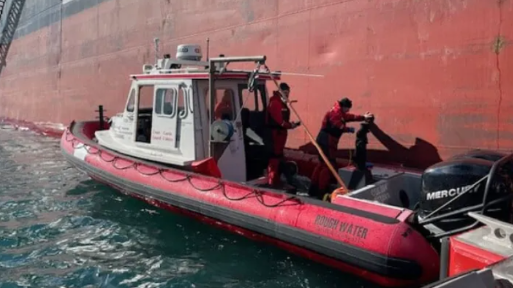Danish shipping giant Maersk recently celebrated the naming of its latest dual-fuel methanol container vessel in Mumbai, marking part of the ship’s maiden voyage to India. The vessel, named "Albert Maersk", is the 11th methanol-capable ship in Maersk’s fleet.
Maersk CEO Vincent Clerc presided over the naming ceremony, which was attended by representatives from Indian port and shipping authorities, customers, partners, and Maersk employees.
Through its integrated logistics solutions, Maersk facilitates the transport of one in every six import and export containers in India, supporting global trade and contributing to the country’s growing economy. The company’s operations in India include two APM terminals in Mumbai and Pipavav, handling over 3 million containers annually, as well as 26 warehouses spanning 350,000 square meters.
During the ceremony, Maersk announced that it sees an investment opportunity of approximately $5 billion in India's ports, terminals, and inland infrastructure development.
Albert Maersk is part of a series of 18 large dual-fuel methanol vessels scheduled for delivery in 2024 and 2025. Built by Hyundai Heavy Industries in Ulsan, South Korea, the vessel has a capacity of 16,592 TEU (Twenty-Foot Equivalent Units). The delivery of this dual-fuel fleet is a key milestone in Maersk’s decarbonization strategy, aiming for net-zero greenhouse gas (GHG) emissions by 2040. Compared to traditional marine fuels, bio-methanol and e-methanol can reduce GHG emissions by at least 65%, depending on the feedstock and production method (measured on a life-cycle basis).
With the necessary vessel technology now available, Maersk continues to urge International Maritime Organization (IMO) member states to implement strong regulations that drive the industry towards its climate goals. Maersk believes that it is crucial for IMO regulations to remain fuel-agnostic, allowing the shipping industry to adopt a diverse range of fuels. Additionally, bridging the cost gap between fossil fuels and alternative fuels is essential to making low-emission shipping a viable and competitive choice.

Last
MSC Container Ship Damaged in Missile Attack at Port
On March 1, Russia launched a missile attack on Ukraine’s Odesa Port, damaging port infrastructure and impacting vessels and perso

Next
MSC Container Ship Hull Damaged, Unable to Refloat Safely!
According to the Canadian Coast Guard, the grounded MSC Baltic III remains unable to refloat safely.The MSC Baltic III container s
